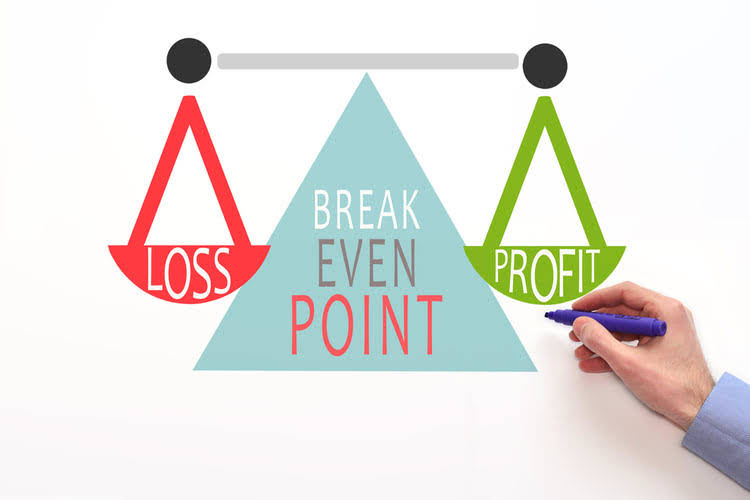Content
- How Can A Bookkeeper Become An Accountant?
- Internal Management Reports
- Hiring Bookkeeper Job Description
- Accounting Topics
- Projected Number Of New Jobs
- Rules And Expectations For Bookkeepers Vs Accountants Roles
- Whats The Difference Between Accountants And Bookkeepers?
- Methods Of Bookkeeping
- Careers

You must have a minimum of 150 postsecondary education hours, or what amounts to a bachelor’s degree in accounting, and an additional 30 hours of graduate work. Bookkeepers may start working for a small business to gain experience and then go back to school for a degree in accounting or finance. What is a bookkeeper Enrolling in one of the best online bookkeeping classes is a smart way for those interested in this career to bolster their existing financial knowledge. With training and experience, professional bookkeepers can help ensure you’re generating accurate financial reports and data.
- They may work longer hours to meet deadlines at the end of the fiscal year, during tax time, or when monthly or yearly accounting audits are performed.
- This can help forecast future cash flow conditions so you can plan for, say, a dry month.
- This can aid in internal business decisions, like where to allocate a surplus of revenue, as well as external decisions, such as an investor’s choice to fund the business’s operations.
- Then they turn that bookkeeping data over to an accountant to provide analysis, advisory services, and prepare tax returns.
- Often, bookkeepers become accountants and are overseen by accountants.
- Bookkeepers record the day-to-day financial transactions of a business.
The error must be located and rectified, and the totals of the debit column and the credit column recalculated to check for agreement before any further processing can take place. When a bookkeeper wants to leap to being an accountant, they will need to take the CPA exam, plus earn a bachelor’s degree , if they do not have one already. Fifty states plus the District of Columbia require accountants to earn 150 credit hours of college education before taking the national four-part Uniform CPA exam. Bookkeepers interested in switching jobs but not have a college degree might consider becoming an enrolled agent after a stint with the IRS. This job doesn’t require a college degree, only five years of tax experience with the IRS.
How Can A Bookkeeper Become An Accountant?
If all your mental powers have been focused on getting your business off the ground, you might not yet fully understand what a bookkeeper does. In this guide we break down the day-to-day role of a bookkeeper, and why a good one is worth holding onto. Learn how to choose an accountant who has the skills your business… Bureau of Labor Statistics, the median salary for an accountant in 2020 was $73,560 per year, or $35.37 per hour.
The initial processes involved in any accounting process are usually the vestige of a bookkeeper. Transaction recording lays a foundation for the final accountancy processes, and an accountant can handle this as well. Therefore between bookkeepers vs. accountants, the limitations of the bookkeeper’s skills analysis and interpretation of financial data are the main difference in professions. However, having an accountant take on the bookkeeper’s role is usually an exception rather than the rule.
- Imbalances between debits and credits are easy to spot on the trial balance.
- While bookkeepers make sure the small pieces fit properly into place, accountants use those small pieces to draw much more significant and broader conclusions.
- An investment consultant provides investors with investment products, advice, and/or planning.
- If you’re spending so much time taking care of accounting tasks that you’re not able to work on growing your business or keeping existing customers happy, you’re doing your enterprise a disservice.
- For instance, a bookkeeper might organize and prepare a business’s financial statement for the fiscal year that details the gross and net revenue the business has generated.
- Bookkeeping first involves recording the details of all of these source documents into multi-column journals .
For example, some small business owners do their own bookkeeping on software their accountant recommends or uses, providing it to the accountant on a weekly, monthly or quarterly basis for action. Other small businesses hire a bookkeeper or employ a small accounting department with data entry clerks reporting to the bookkeeper. Bookkeeping is the recording of financial events that take place in a company. Any process of recording financial data is considered bookkeeping and is the first step of data entry into the accounting system. Standard methods of bookkeeping are the double-entry bookkeeping system and the single-entry bookkeeping system.
Internal Management Reports
Producing invoices, chasing payments, getting you ready for tax deadlines and processing payroll. These are just some of the things bookkeepers do for small businesses. Bookkeepers might also have to manually add any transactions that aren’t included in the bank feed. The transactions that need to be added will most likely be transactions generated outside of the accounting system, such as cash payments or handwritten checks.

Maintaining financial records is often a time-consuming task because it requires extreme accuracy across every single financial transaction. Part of being accurate is communicating with colleagues or clients. Bookkeepers must maintain and balance financial records daily, including transactions from coworkers. It can be difficult to record those daily transactions without strong communication. Only an accountant licensed to do so can prepare certified financial statements for lenders, buyers and investors.
Hiring Bookkeeper Job Description
Accountants on the other hand, go through rigorous training and standardized exams to become certified public accountants. Most recently she was a senior contributor at Forbes covering the intersection of money and technology before joining business.com.
Good bookkeeping practices are essential for a business to succeed, especially when it comes to the tax-paying season. Bookkeeping, accounting, and auditing clerks usually get on-the-job training. Under the guidance of a supervisor or another experienced employee, new clerks learn how to do their tasks, such as double-entry bookkeeping.

This ensures that only valid business transactions are being entered into your books. Today’s bookkeeping software allows you to snap a photo of or scan in your source documents, and then OCR technology will extract the pertinent information and do much of the data entry for you.
Accounting Topics
The bookkeeper job duties vary, but are usually focused on getting data into the system correctly and on time. The person in an organisation who is employed to perform bookkeeping functions is usually called the bookkeeper (or book-keeper). Thereafter, an accountant can create financial reports from the information recorded by the bookkeeper. The bookkeeper brings the books to the trial balance stage, from which an accountant may prepare financial reports for the organisation, such as the income statement and balance sheet. Most small firms have one general bookkeeper, also called a full-charge bookkeeper. General bookkeepers verify and enter into ledgers the details of their firm’s financial transactions.
- Ultimately, effective bookkeeping can mean the difference between a business accurately and efficiently organizing its financial information and making critical mismanagement errors.
- It is important to possess sharp logic skills and big-picture problem-solving abilities, as well.
- In addition to keeping records, general bookkeepers may prepare payrolls, tax reports, and customers’ monthly invoice statements.
- Bookkeepers record daily transactions in a consistent, easy-to-read way.
- But what do all of these figures really mean, and where do you go from there?
While these services come at a cost, they can maximize the accuracy and efficiency of vital financial management processes. There are several types of accounting certifications that accountants obtain to expand their skill sets and gain positions within larger organizations. In addition to CPA credentials, other common accounting designations are chartered financial analyst and certified internal auditor . Each sale and purchase your business conducts must be recorded in the ledger, and some items will need documentation. You can find more information on which transactions require supporting documents on the IRS website. Bookkeeping is a direct record of all purchases and sales your business conducts, while accounting is a subjective look at what that data means for your business. Here’s what you need to know about these two roles to determine which one your business needs.
Projected Number Of New Jobs
We recommend taking the time to find a bookkeeper you can trust a great deal. Here are some advantages to hiring an accountant over a bookkeeper. Accountants’ qualifications depend on their experience, licenses and certifications.
The accounting software, depending on how effective it is, should be able to automatically categorize certain transactions. For example, a credit card transaction from an airline can be automatically categorized as a travel expense. Bookkeepers keep an eye on these transactions and make sure they are being categorized correctly.
Bookkeepers who work for multiple firms may visit their clients’ places of business. They often work alone, but sometimes they collaborate with accountants, managers, and auditing clerks from other departments. Bookkeeping, accounting, and auditing clerks use specialized computer accounting software, spreadsheets, and databases to enter information from receipts or bills. They must be comfortable using computers to record and calculate data. Bookkeeping, accounting, and auditing clerks typically need some postsecondary education to enter the occupation. The difference between bookkeeping and accounting isn’t always black and white.
Rules And Expectations For Bookkeepers Vs Accountants Roles
Have any lingering questions about what a bookkeeper does or whether you need one? You can also download the Keeper Tax app and start chatting with a bookkeeper right away.
- There are some financial tasks that bookkeepers aren’t equipped for; that’s where accountants come in.
- Sometimes, your situation might not require a dedicated bookkeeper — but you could still use a hand with recordkeeping and expense tracking.
- From recording sales revenue to balancing accounts, bookkeeping can commonly include the following tasks.
- Bookkeeping also works by managing all the financial records of a company.
- Either way, having a bookkeeper keeping track of your small business’s finances will free up the time and energy you need for growing your business.
- It’s important to regularly reconcile your accounts to avoid overdraft fees, fraudulent charges, or incorrectly recorded transactions.
There are links in the left-hand side menu to compare occupational employment by state and occupational wages by local area or metro area. There is also a salary info tool to search for wages by zip code. Some formal classroom training also may be necessary, such as training in specialized computer software. While it can be reassuring to see letters after an individual’s name, we recommend focusing instead on finding an accountant who offers the services you need, you feel comfortable with, and trust. Revenue is all the income a business receives in selling its products or services.
If you feel like you’re drowning in paperwork and spending too much time on behind-the-scenes tasks, an accountant or bookkeeper can help. Bookkeepers sometimes do accounting tasks, such as generating financial reports from the accounting software, making journal entries for depreciation and accrued expenses, and more. Your bookkeeper may track accounts payable and accounts receivable . Bookkeepers keep tabs on all invoices and due dates and follow up with late payers.
Occupation Job Duties ENTRY-LEVEL EDUCATION 2021 MEDIAN PAY Accountants and Auditors Accountants and auditors prepare and examine financial records. With more automation of routine tasks, bookkeepers are expected to take on a more analytical and advisory role over the decade. For example, rather than entering data by hand, bookkeepers will focus on analyzing their clients’ books and pointing out potential areas for efficiency gains. The median annual wage for bookkeeping, accounting, and auditing clerks was $45,560 in May 2021. The median wage is the wage at which half the workers in an occupation earned more than that amount and half earned less. The lowest 10 percent earned less than $29,120, and the highest 10 percent earned more than $61,980.
Column One contains the names of those accounts in the ledger which have a non-zero balance. If an account has a debit balance, the balance amount is copied into Column Two ; if an account has a credit balance, the amount is copied into Column Three . The debit column is then totalled, and then the credit column is totalled.
You also have to decide, as a new business owner, if you are going to use single-entry or double-entry bookkeeping. Single-entry bookkeeping is much like keeping your check register. You record transactions as you pay bills and make deposits into your company account. It only works if your company is relatively https://www.bookstime.com/ small with a low volume of transactions. At the end of the appropriate time period, the accountant takes over and analyzes, reviews, interprets and reports financial information for the business firm. The accountant also prepares year-end financial statements and the proper accounts for the firm.
If you are proficient and comfortable using mathematics and computing figures, plus punctual, organized, and detail-oriented, it is not hard to learn how to be a bookkeeper. Of course, a background in accounting practices will help you ride out a learning curve as a new bookkeeper. Mid-size and small public accounting firms pay, on average, about 10% less than the Big Four.
